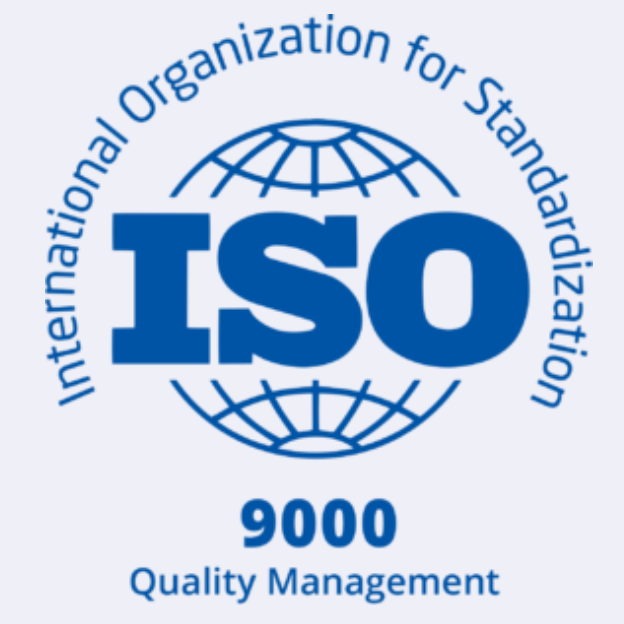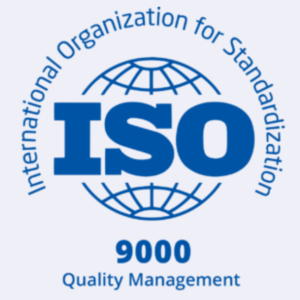ISO 9000, a set of international standards for quality management, provides a framework that helps organizations establish and maintain effective quality management systems.
By implementing ISO 9000 standards, companies can enhance customer satisfaction, improve operational efficiency, and ensure consistent product and service quality. Achieving ISO 9000 certification demonstrates a commitment to quality and can provide a competitive advantage in the marketplace.
In today’s rapidly changing business landscape, organizations are constantly striving to improve their operations and stay ahead of the competition. Two key areas that businesses focus on are ISO 9000 certification and digitalization.
But the question arises: which should come first? Should companies prioritize ISO 9000 certification or digitalization? Let’s explore this topic further to understand the benefits and considerations of each.
Embracing Digitalization
Digitalization has become a crucial aspect of modern business strategies. Digitalization involves the integration of digital technologies into various aspects of an organization’s operations, enabling automation, data-driven decision-making, and improved customer experiences. Embracing digital tools and technologies can streamline processes, increase productivity, and open up new opportunities for growth and innovation.
The Relationship between ISO 9000 and Digitalization
The relationship between ISO 9000 and digitalization is not mutually exclusive; rather, they complement each other. Digitalization can enhance ISO 9000 implementation by providing tools for process automation, data analysis, and real-time monitoring, which can streamline quality management processes. In turn, ISO 9000 certification can provide a solid foundation for digitalization efforts by ensuring consistent quality standards and instilling a culture of continuous improvement.
Deciding Between ISO 9000 and Digitalization First
When deciding between ISO 9000 certification and digitalization, organizations should consider several factors:
Analyzing Business Needs and Goals
It is essential to analyze the unique needs and goals of the business. Assessing areas that require immediate improvement or areas where digitalization can have the most significant impact can help determine priorities.
Considering Industry-Specific Requirements
Industry-specific requirements should be taken into account. Some industries may have specific regulations or standards that necessitate ISO 9000 certification as a prerequisite for doing business. Understanding these requirements can influence the decision-making process.
Evaluating Readiness
Organizations should evaluate their readiness for ISO 9000 or digitalization. Implementing ISO 9000 requires commitment, resources, and a cultural shift towards quality management. Similarly, digitalization requires adequate technological infrastructure, skilled personnel, and change management strategies. Assessing readiness can help determine where to start and how to effectively implement both ISO 9000 and digitalization initiatives.
Conclusion
In conclusion, prioritizing between ISO 9000 certification and digitalization is not a straightforward decision. Both offer unique benefits that can contribute to business success in different ways.
At Datum Clearmind, we prioritize digitalization to help businesses save time and improve sales. By embracing digital tools and technologies, we streamline ISO 9000 processes and prioritize specific services based on client requirements.
For example, if a potential client requires ISO certification or a digital service report, we recognize the overlap between ISO 9000 processes and digitalization efforts. Our M4 system will enable you to prioritize these services, leveraging digital capabilities to automate tasks, eliminate manual paperwork, and centralize data management. This not only saves time but also improves operational efficiency and reduces the risk of errors.
By encouraging digitalization as a priority, we empower businesses to achieve ISO 9000 goals efficiently, while maximizing cost savings.
FAQ:
1. Can digitalization enhance the ISO 9000 certification process?
Yes, digitalization can enhance the ISO 9000 certification process by providing tools for automation, data analysis, and real-time monitoring. Digital tools can help streamline quality management processes, improve efficiency, and enable better decision-making.
2. How can ISO 9000 certification benefit the digitalization efforts of an organization?
ISO 9000 certification provides a structured approach to quality management, which can serve as a foundation for digitalization initiatives. By implementing ISO 9000 standards, organizations can establish consistent quality standards and foster a culture of continuous improvement, aligning with the goals of digital transformation.
3. Is it possible to implement both ISO 9000 and digitalization simultaneously?
Yes, it is possible and beneficial to implement both ISO 9000 and digitalization initiatives simultaneously. While ISO 9000 focuses on quality management, digitalization complements it by leveraging technology for automation, data-driven decision-making, and improved customer experiences.
4. What are the potential risks of prioritizing one over the other?
If organizations prioritize digitalization without considering quality management principles, they may risk compromising product or service quality. Similarly, focusing solely on ISO 9000 without embracing digitalization could result in missed opportunities for process optimization and innovation.
5. How can organizations determine the right order for ISO 9000 and digitalization implementation?
Organizations should assess their specific needs, industry requirements, and readiness for both ISO 9000 and digitalization. Analyzing areas that require immediate improvement or where digitalization can have the most significant impact can help determine priorities.
It is also important to evaluate the organization’s technological infrastructure, available resources, and change management capabilities before deciding on the order of implementation.









